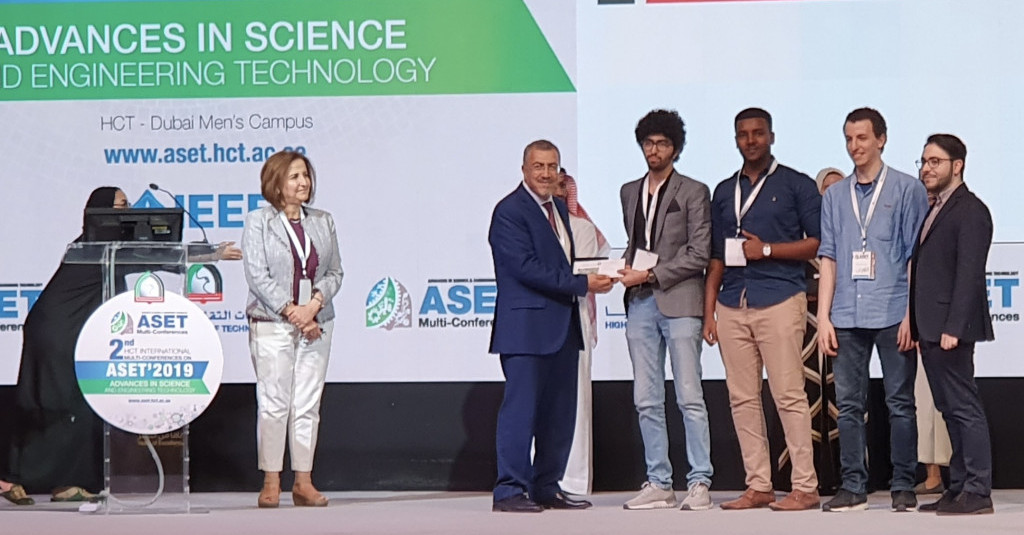“Smart Assistive Glasses for Alzheimer’s Patients” Earns Top Prize for AU Students in UAE Poster Competition

A team of electrical engineering students from Ajman University (AU) won top prize in the student scientific poster competition during the “Advances in Engineering Technology & Sciences Multi-Conferences” hosted by Higher Colleges of Technology in Dubai on March 26. Their award-winning project, “Smart Assistive Glasses for Alzheimer's Patients,” conceives of an augmented-reality screen that performs basic caregiver functions in an effort to prolong the independence of people with dementia.
More than 50 teams applied for the opportunity to participate in the competition, but only 25 earned the right to showcase their projects. AU’s students – Mohamed Ait Gacem, Saifelddin O.S. Alghlayini, Muaid Hafiz, and Ahmad Ghazal – took home first place for a concept that has the potential to assist millions of memory-impaired patients around the world.
“Smart Assistive Glasses” stand to benefit those in the early to mid-stages of Alzheimer’s disease who are facing challenges with daily activities but do not yet require long-term care in a facility. Core features of the apparatus include:
- Locating everyday objects and guiding the patient to find them.
- Detecting accidents, then notifying caregivers and emergency services.
- Tracking patient location throughout the course of a day.
- Setting “geofences” to detect whether the patient is out of bounds or lost.
- Recognizing the faces of friends and family and displaying them on the screen.
- Detecting whether a patient has removed the smart glasses and why.
“Smart Assistive Glasses could extend the quality of life for people suffering from what is still an untreatable and incurable disease. They could also help ease the financial burdens associated with having a family member with Alzheimer’s by allowing caregivers to monitor their health and safety remotely,” explains AU Chancellor Karim Seghir. “It’s a brilliant approach to managing one of the world’s most vexing issues. We are so proud of our students for their innovation and compassion.”